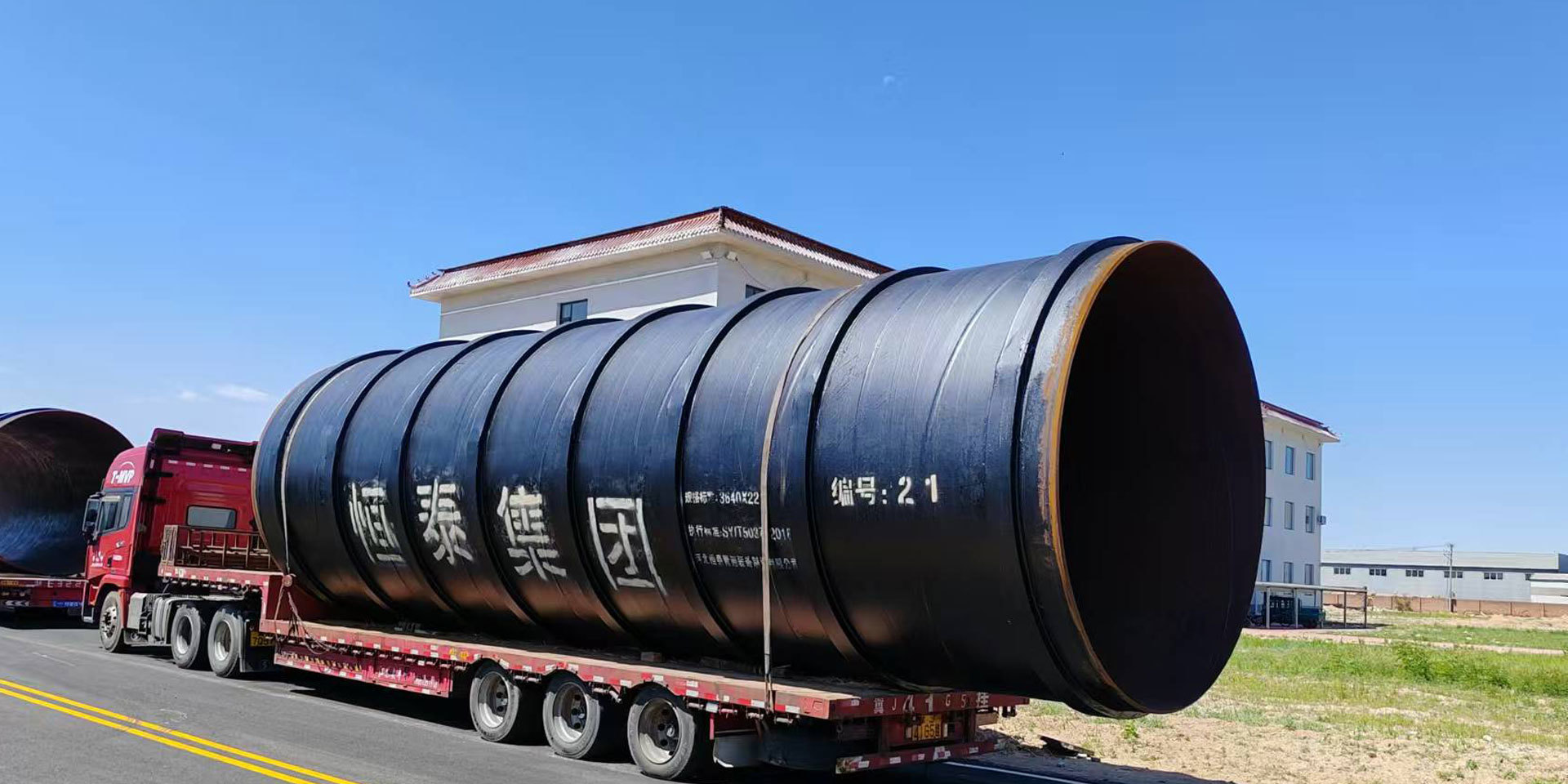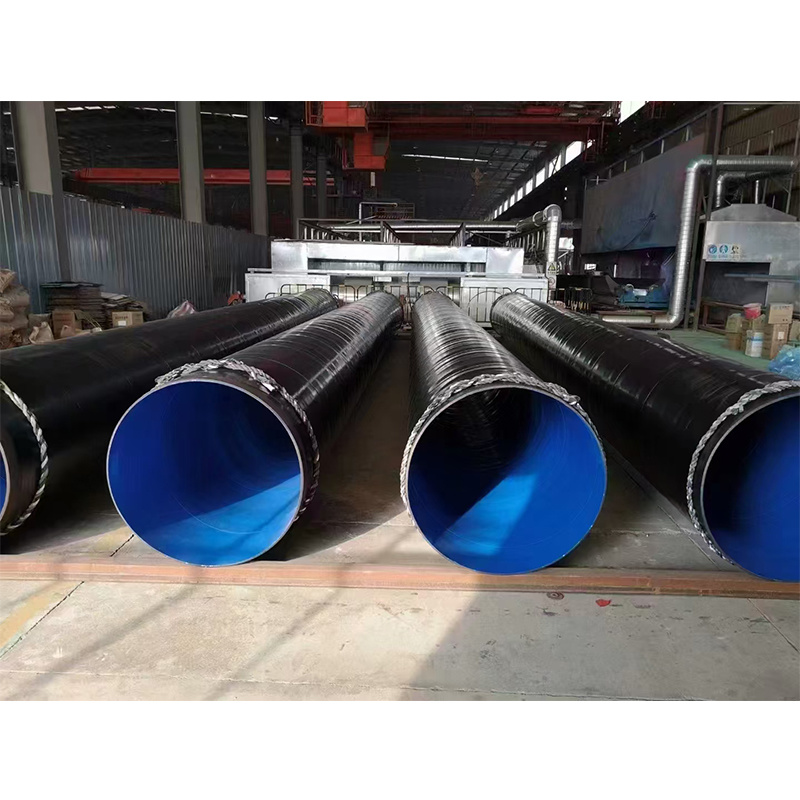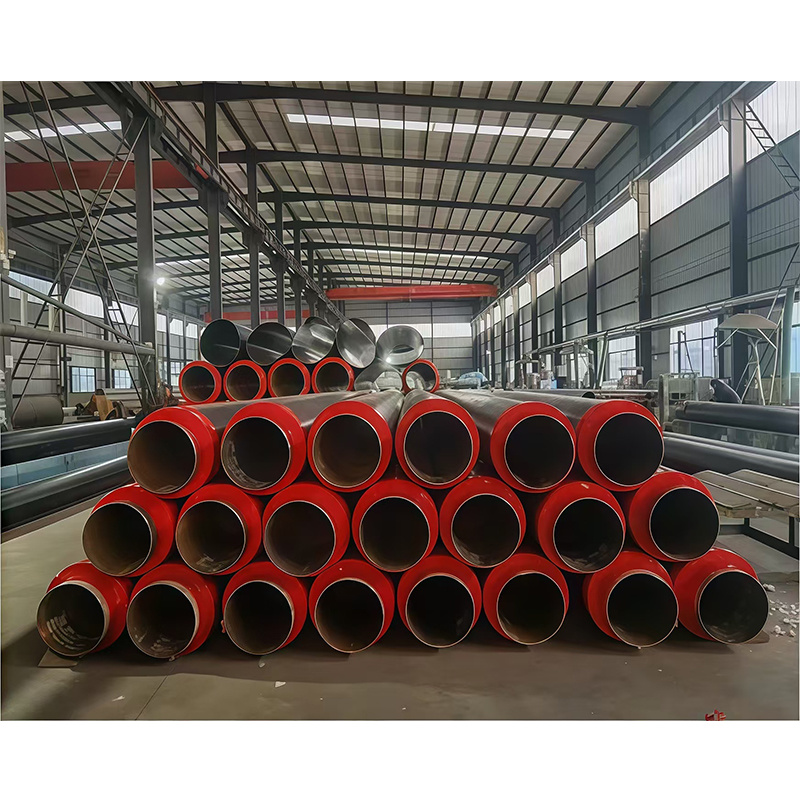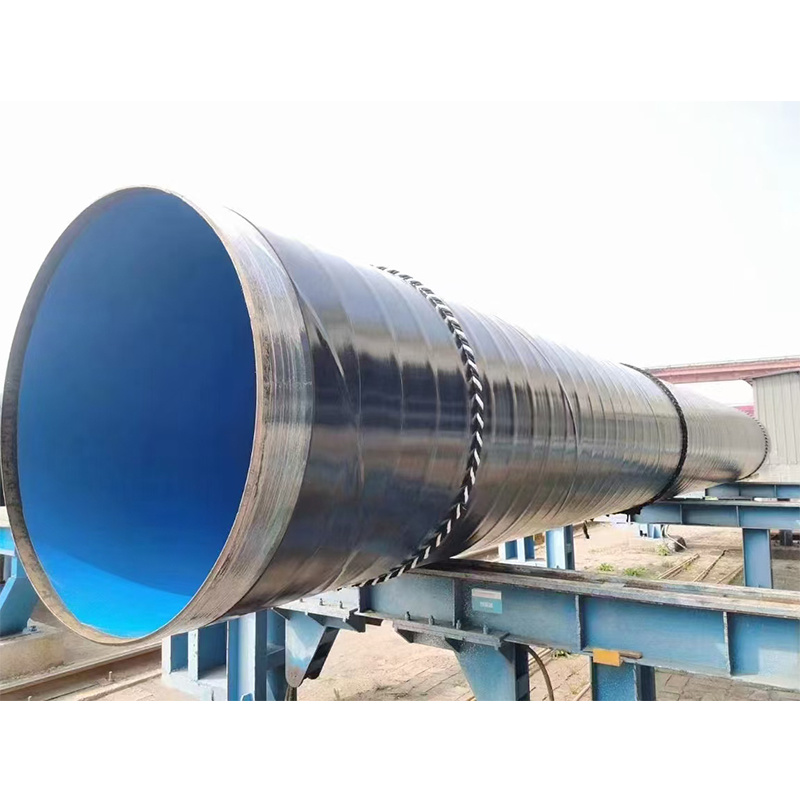Unlocking the Benefits of CE Coated Steel Pipes for Natural Gas: A Comprehensive Guide
Jun 08,2025
Unlocking the Benefits of CE Coated Steel Pipes for Natural Gas
Natural gas plays a vital role in our energy ecosystem, serving as a cleaner-burning alternative to traditional fossil fuels. As the demand for natural gas continues to grow, so does the need for reliable and efficient transportation systems. One critical component in this infrastructure is the piping used to transport natural gas. In

Unlocking the Benefits of CE Coated Steel Pipes for Natural Gas
Natural gas plays a vital role in our energy ecosystem, serving as a cleaner-burning alternative to traditional fossil fuels. As the demand for natural gas continues to grow, so does the need for reliable and efficient transportation systems. One critical component in this infrastructure is the piping used to transport natural gas. In this guide, we will explore **CE coated steel pipes** and the distinct advantages they offer over conventional piping materials.
Understanding CE Coated Steel Pipes
Before delving into the benefits, it is essential to understand what CE coated steel pipes are. CE stands for **Coating for Environmental protection**. These pipes are typically made from high-quality steel and are coated with a protective layer to enhance their longevity and resistance to environmental factors.
The Composition of CE Coated Steel Pipes
CE coated steel pipes are constructed using high-strength steel alloys, which provide mechanical strength and resilience. The coating is often made from advanced polymer materials that offer exceptional resistance to corrosion and wear. This combination results in a pipe that is not only strong but also durable enough to withstand harsh environmental conditions.
Types of Coatings Used
Various types of coatings can be applied to steel pipes, including:
- **Polyethylene Coating**: Offers excellent corrosion resistance and is commonly used in underground applications.
- **Epoxy Coating**: Known for its strong adhesion and chemical resistance.
- **Fusion-Bonded Epoxy Coating**: Provides a robust barrier against moisture and corrosive substances.
Each type of coating enhances the performance of steel pipes in different environments, making them versatile for various applications.
The Advantages of CE Coated Steel Pipes for Natural Gas
Now that we have a foundation for understanding CE coated steel pipes, let’s explore the benefits they provide, particularly in natural gas applications.
1. Enhanced Corrosion Resistance
One of the primary advantages of CE coated steel pipes is their enhanced **corrosion resistance**. Natural gas pipelines often face exposure to moisture and various chemicals that can lead to rust and deterioration. The protective coating acts as a barrier, preventing corrosive substances from contacting the steel. As a result, these pipes have a significantly extended lifespan, reducing the need for frequent replacements.
2. Improved Durability and Strength
CE coated steel pipes are engineered for strength. They can withstand high pressures and extreme temperatures, making them ideal for transporting natural gas over long distances. Their durability ensures minimal risk of leaks, which is crucial in maintaining safety standards in gas distribution systems.
3. Cost-Effectiveness Over Time
While the initial investment for CE coated steel pipes may be higher than traditional materials, the long-term benefits outweigh the costs. The durability and reduced maintenance requirements lead to lower operational costs. Furthermore, fewer replacements over time contribute to overall cost savings for companies in the natural gas sector.
4. Environmental Impact Considerations
Using CE coated steel pipes contributes to a lower environmental impact. Their longevity means less waste generated from pipe replacements, and their efficiency in transporting natural gas supports cleaner energy initiatives. Additionally, the coatings used are often environmentally friendly, aligning with modern sustainability goals.
5. Versatility in Applications
CE coated steel pipes are versatile and can be used in various applications within the natural gas industry, including:
- **Transmission Pipelines**: For transporting natural gas across long distances.
- **Distribution Systems**: Connecting gas supply to end-users.
- **Storage Facilities**: For holding natural gas in a safe and efficient manner.
Their adaptability makes them a preferred choice among many industry professionals.
Installation of CE Coated Steel Pipes
Installing CE coated steel pipes requires careful planning and execution to ensure optimal performance. Below, we outline the key steps involved in the installation process.
1. Site Preparation
Before installation, the site must be surveyed and prepared. This includes clearing the area of debris, assessing soil conditions, and ensuring adequate space for the pipe layout.
2. Pipe Handling
CE coated steel pipes should be handled with care to prevent damage to the coating. Use appropriate lifting techniques and equipment to avoid impact that may compromise the integrity of the coating.
3. Joining Techniques
There are several joining methods for CE coated steel pipes, including:
- **Welding**: Provides strong, permanent connections but requires skilled labor.
- **Mechanical Couplings**: Easier and quicker to install, reducing labor costs.
Each method has its advantages, and the choice will depend on the specific requirements of the project.
4. Backfill and Restoration
After installation, the trench must be backfilled with suitable material to prevent pipe movement. Additionally, restoration of the surface area should be conducted to ensure environmental compliance and site aesthetics.
Maintenance Tips for CE Coated Steel Pipes
While CE coated steel pipes are designed for durability, regular maintenance is essential for ensuring their longevity and performance.
1. Regular Inspections
Conduct periodic inspections to identify any signs of wear, damage, or corrosion. Early detection of issues can prevent costly repairs and ensure the integrity of the pipeline.
2. Cleaning and Coating Touch-Ups
Cleaning the exterior of the pipes can prevent the buildup of corrosive materials. If any damage to the coating is observed, touch-ups should be performed immediately to maintain protection.
3. Monitor Pressure and Flow Rates
Monitoring the pressure and flow rates within the pipeline can help identify potential leaks or blockages. Implementing monitoring systems can provide real-time data, allowing for quick responses to any issues.
4. Professional Maintenance Services
Engaging professional maintenance services can ensure that inspections and repairs are conducted correctly and efficiently. Experts in the field can provide valuable insights and solutions tailored to your specific systems.
Frequently Asked Questions (FAQs)
1. What is the lifespan of CE coated steel pipes?
CE coated steel pipes can last between 30 to 50 years, depending on the environment and maintenance practices.
2. Can CE coated steel pipes be used for other applications?
Yes, they are versatile and can be used in various applications, including water supply, sewage systems, and industrial processes.
3. How do CE coated steel pipes compare to other materials?
They offer superior corrosion resistance and strength compared to traditional uncoated steel pipes and are often more cost-effective in the long term.
4. What maintenance is required for CE coated steel pipes?
Regular inspections, cleaning, and monitoring of pressure and flow rates are essential for maintaining their integrity.
5. Are CE coated steel pipes environmentally friendly?
Yes, their durability and efficiency in transporting natural gas contribute to a lower environmental impact, aligning with sustainability goals.
Conclusion
CE coated steel pipes represent a transformative solution for the natural gas industry, offering unparalleled benefits in corrosion resistance, durability, and cost-effectiveness. Their versatility makes them suitable for various applications, while proper installation and maintenance ensure their performance over time. By choosing CE coated steel pipes, industry professionals can enhance the reliability of natural gas distribution systems, contributing to a more sustainable energy future. Investing in these advanced piping solutions is not just a choice—it's a commitment to quality, safety, and environmental responsibility.
TAG:
Previous:
Related Posts
Unlocking the Benefits of CE Coated Steel Pipes for Natural Gas: A Comprehensive Guide
Unlocking the Benefits of CE Coated Steel Pipes for Natural Gas
Natural gas plays a vital role in our energy ecosystem, serving as a cleaner-burning alternative to traditional fossil fuels. As the demand for natural gas continues to grow, so does the need for reliable and efficient transportation systems. One critical component in this infrastructure is the piping used to transport natural gas. In









